Indianz.Com > News > Cronkite News: Native voting rights bill caught up in partisan debate
Navajo president backs bill to protect Native American voting rights
Friday, October 22, 2021
Cronkite News
WASHINGTON, D.C. – Navajo Nation President Jonathan Nez told a Senate panel Wednesday that special protections are needed to reverse the “very disrespectful” treatment of Native Americans who face extraordinary challenges in the voting process.
Nez joined others urging a Senate Judiciary subcommittee to support the Native American Voting Rights Act, which would set minimum federal requirements for voting on tribal lands, including early voting, mail-in balloting, ballot collecting and ID standards. [H.R.5008 | S.2702]
“It’s not about Democrat or Republican,” Nez said. “It’s about doing the right thing.”
This includes addressing the many voting barriers that are unique to Native Americans, such as the lack of voting locations on reservations, which makes it difficult for them to vote, Nez said.
“Traveling to polling places can be particularly burdensome,” he said.
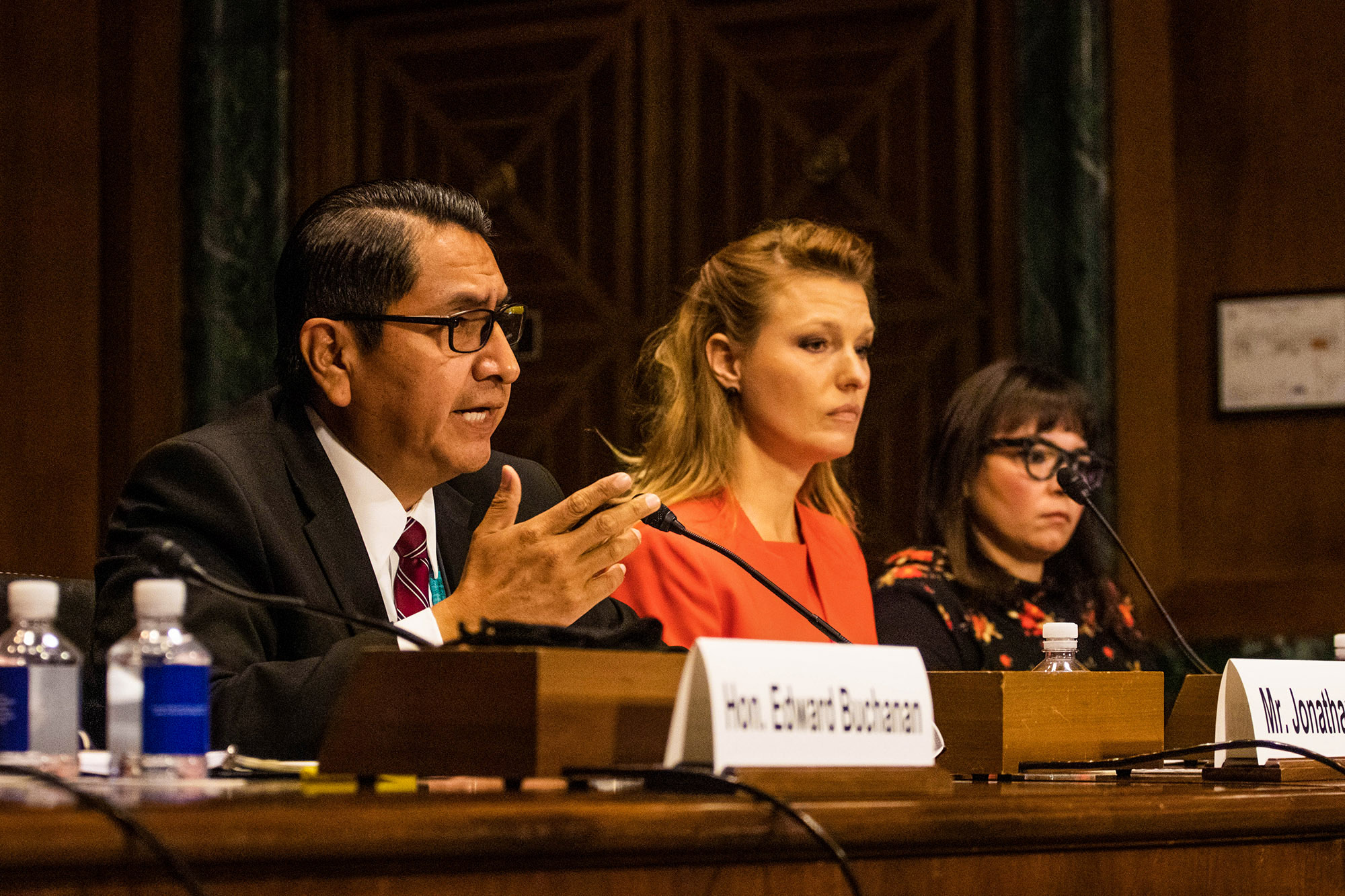
Native American Voting Rights Act Social Media Toolkit: vote.narf.org
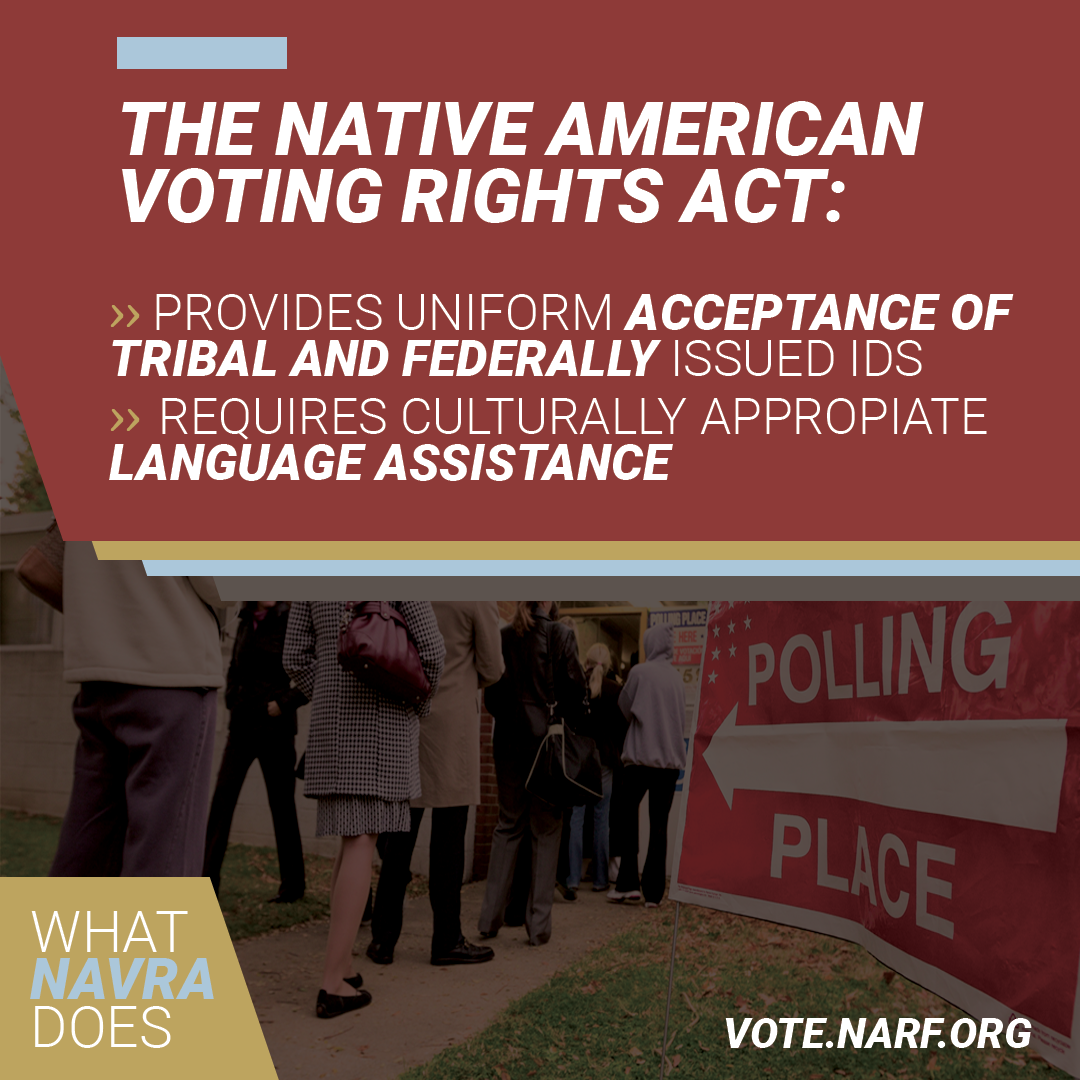
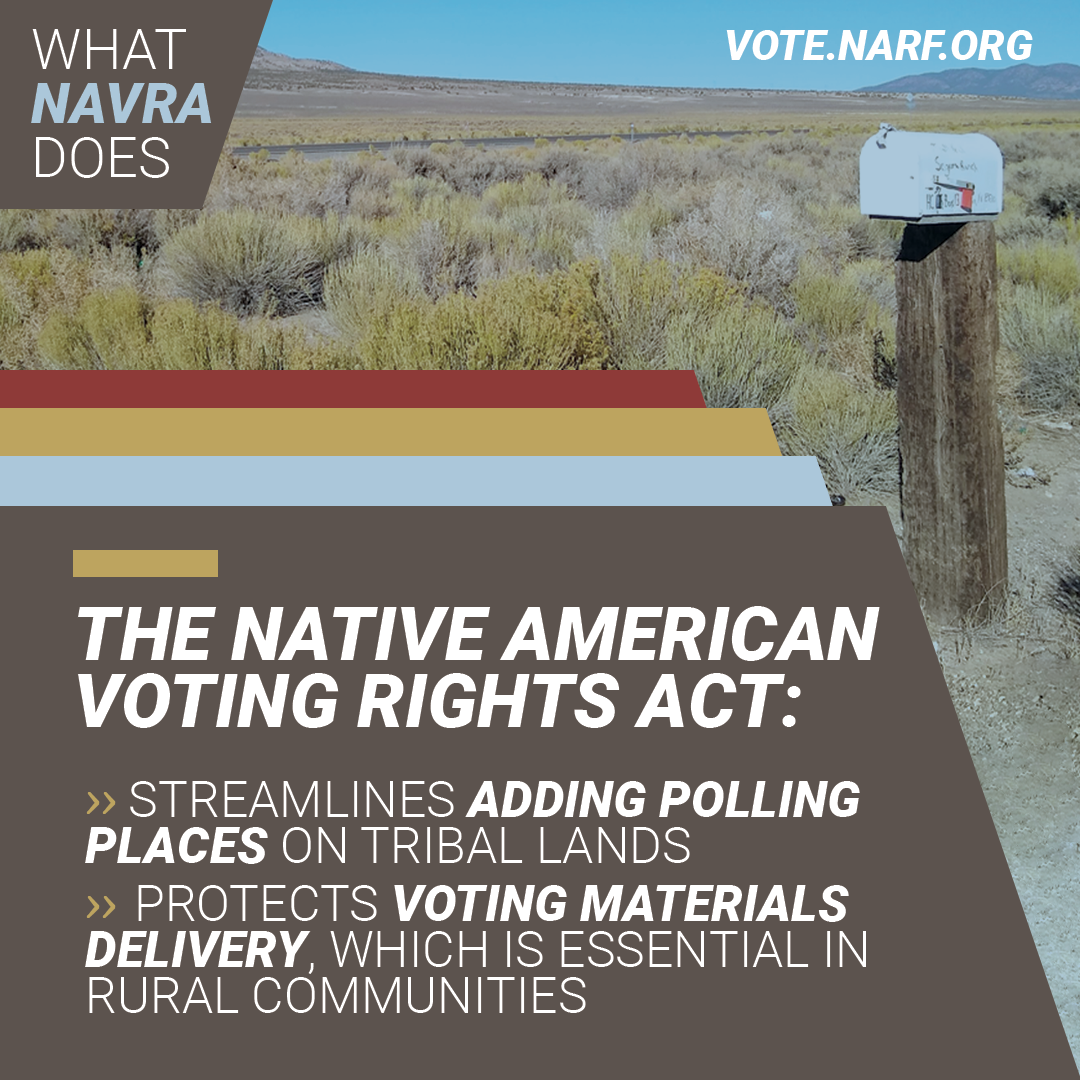
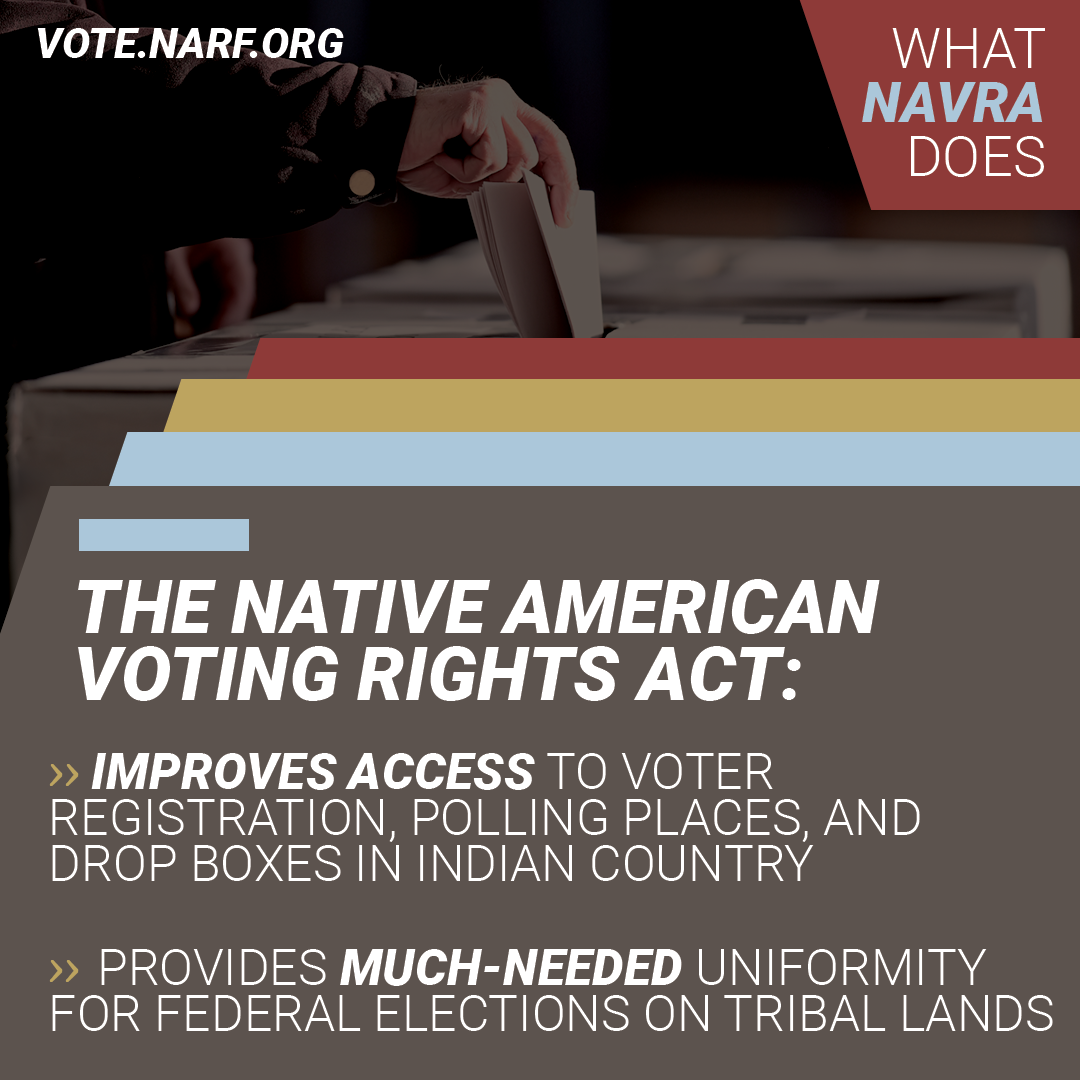
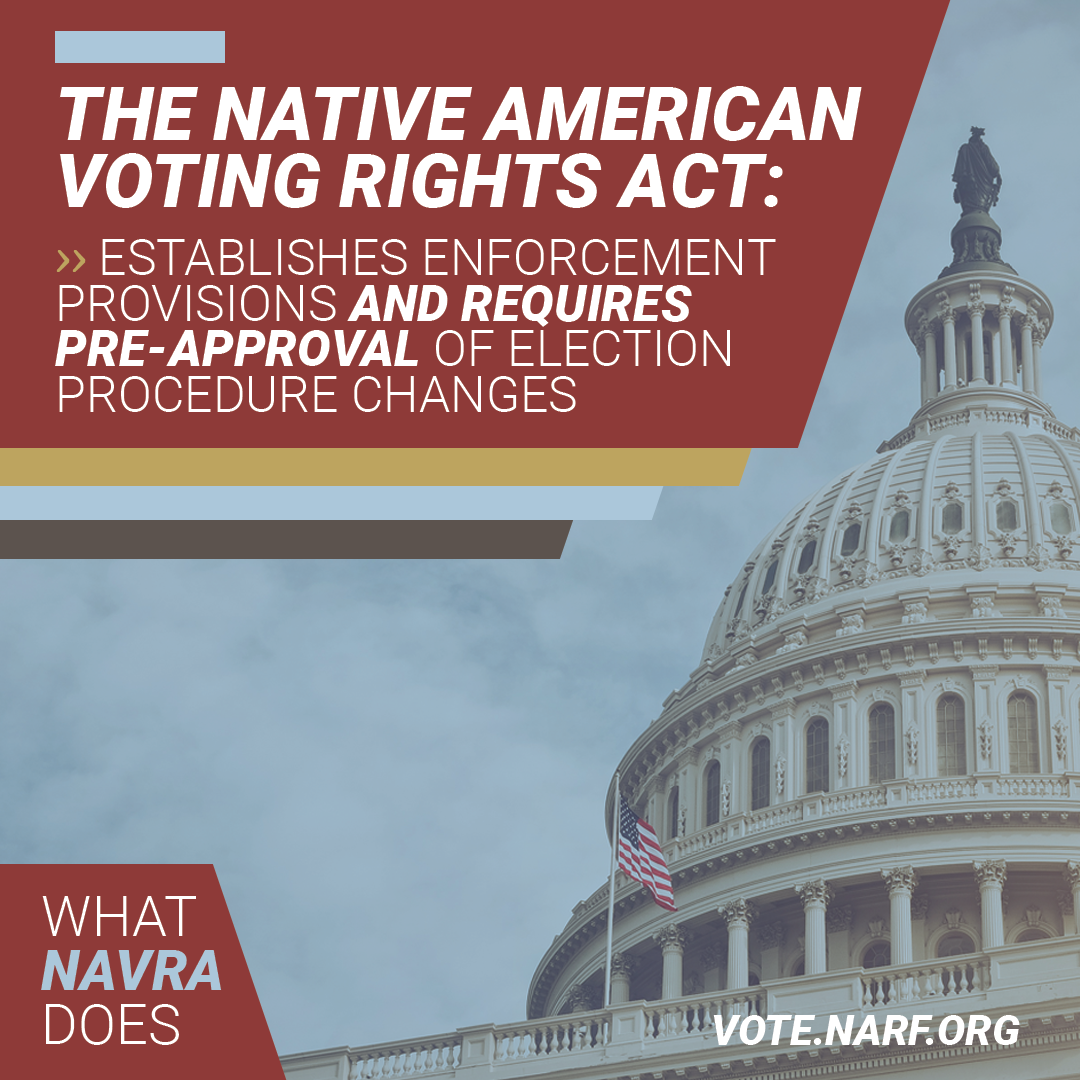
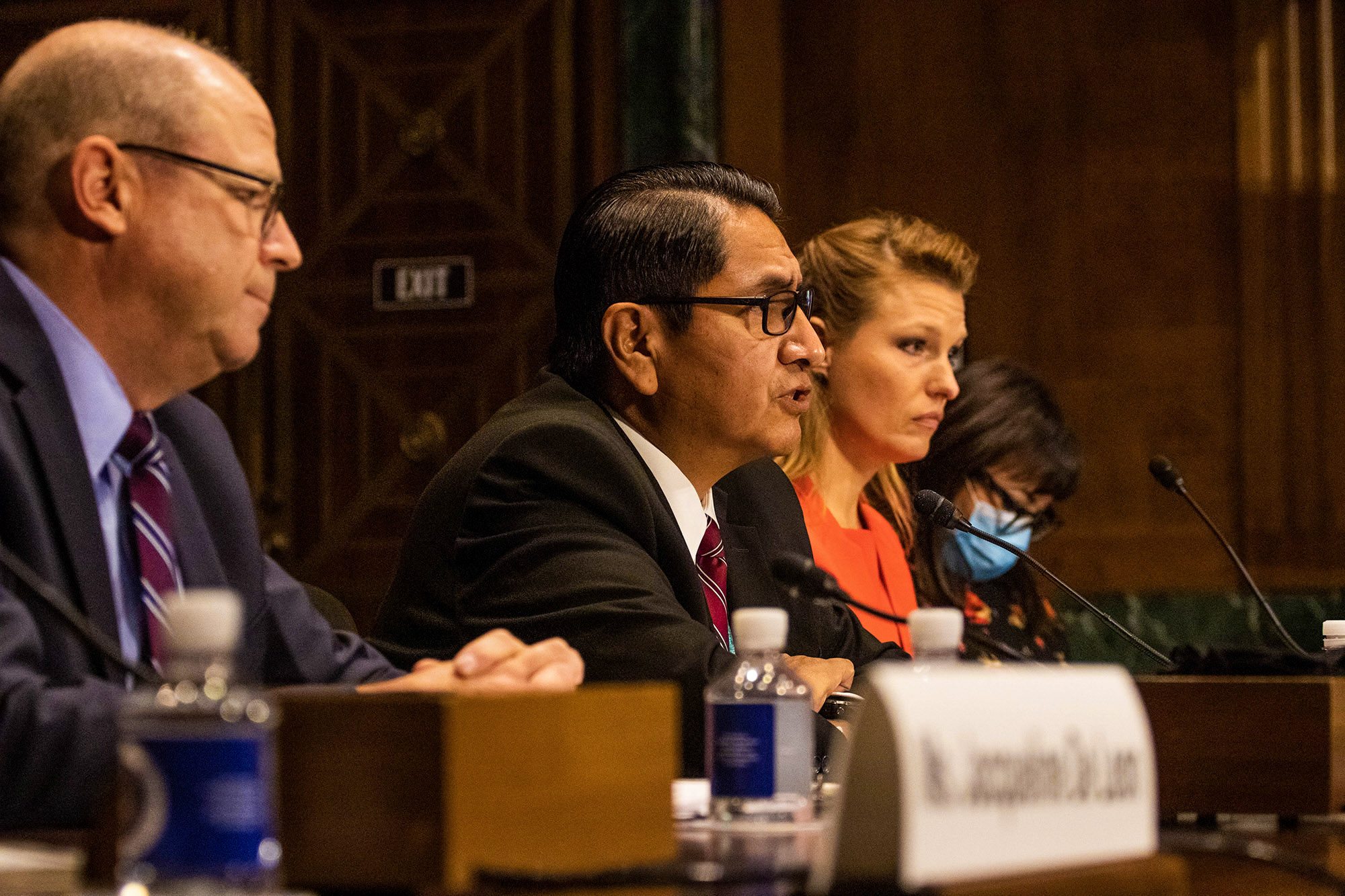
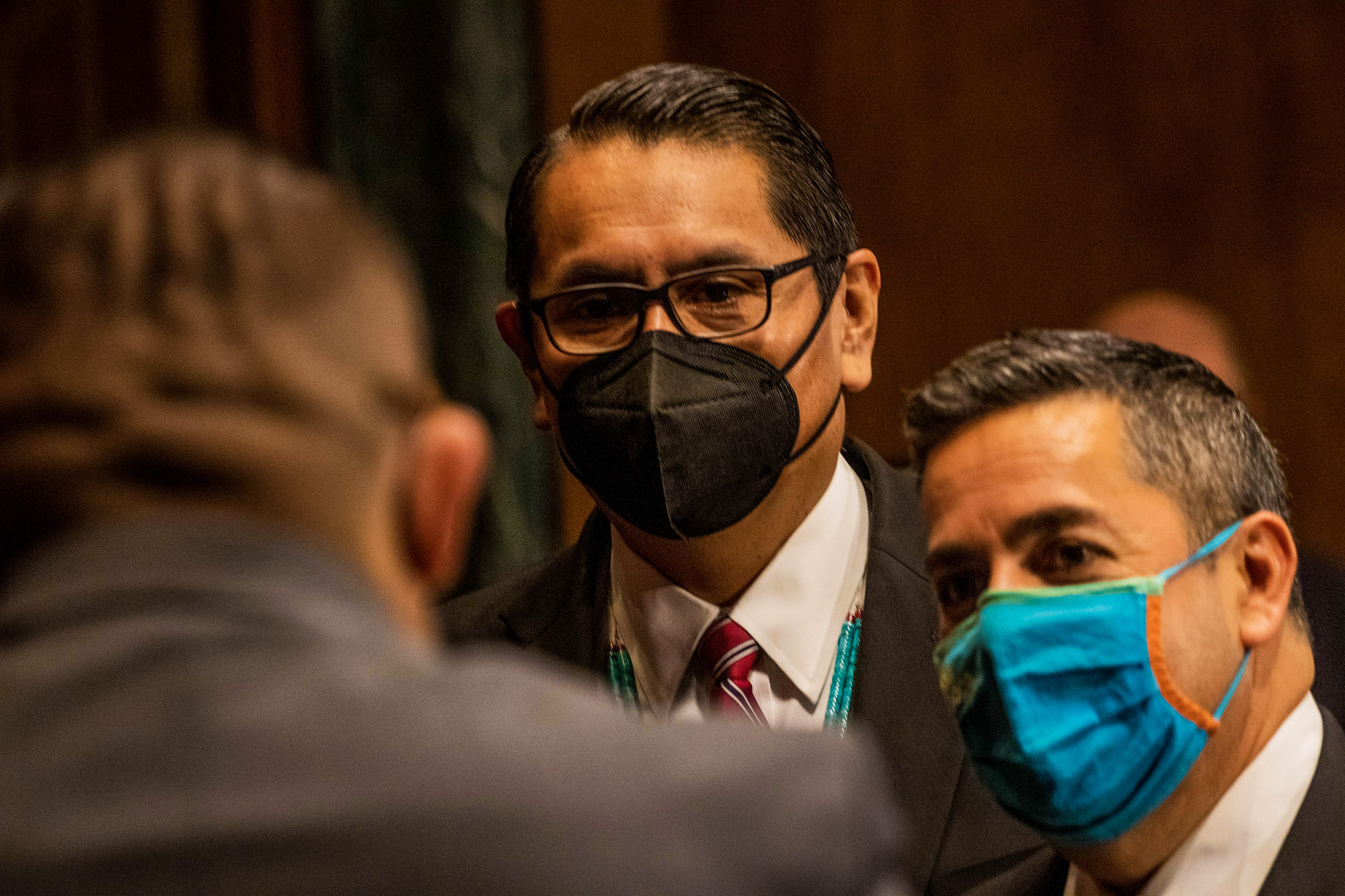
Note: This story originally appeared on Cronkite News. It is published via a Creative Commons license. Cronkite News is produced by the Walter Cronkite School of Journalism and Mass Communication at Arizona State University.
Senate Committee on the Judiciary / Subcommittee on The Constitution
Restoring the Voting Rights Act: Protecting the Native American and Alaska Native Vote (October 20, 2021)
Related Stories
Chuck Hoskin: Cherokee Nation works to protect Native voting rights (September 27, 2021)Gaylord News: Voting rights bill addresses long-standing obstacles in Indian Country (September 17, 2021)
Aaron Payment: Protecting treaty rights and tribal sovereignty by protecting voting (August 30, 2021)
Vice President Kamala Harris and Secretary Deb Haaland: Native American Voting Rights (July 28, 2021)
Tribes and tribal citizens accuse South Dakota of violating voting laws (July 9, 2021)
Cronkite News: Republicans block passage of voting rights bill (June 23, 2021)
Cronkite News: Native voting rights debated on Capitol Hill (May 27, 2021)
Montana Free Press: Indian lawmakers focus on big issues (May 21, 2021)
Cronkite News: Pascua Yaqui Tribe loses voting rights case (October 26, 2020)
Search
Filed Under
Tags
More Headlines
Press Release: National Museum of the American Indian hosts Native art market
AUDIO: Sea Lion Predation in the Pacific Northwest
Native America Calling: Tribal colleges see an uncertain federal funding road ahead
Native America Calling: Short films taking on big stories
Native America Calling: Advocates push back against new obstacles to Missing and Murdered Indigenous Relatives momentum
Native America Calling: For all its promise, AI is a potential threat to culture
NAFOA: 5 Things You Need to Know this Week (November 24, 2025)
Chuck Hoskin: Cherokee Nation invests in rural transportation
Native America Calling: Native candidates make strides in local elections
National Congress of American Indians returns incumbents and welcomes newcomers to leadership
National Congress of American Indians chooses leadership at big convention
‘Not voting is still a vote’: Native turnout drops amid changes in political winds
Native America Calling: Indigenous voices speak up, but have little clout at COP30
‘It’s bull****’: Indian Country confronts challenges at largest inter-tribal conference
Native America Calling: The constant burden on tribal hunters to justify their treaty rights
More Headlines
AUDIO: Sea Lion Predation in the Pacific Northwest
Native America Calling: Tribal colleges see an uncertain federal funding road ahead
Native America Calling: Short films taking on big stories
Native America Calling: Advocates push back against new obstacles to Missing and Murdered Indigenous Relatives momentum
Native America Calling: For all its promise, AI is a potential threat to culture
NAFOA: 5 Things You Need to Know this Week (November 24, 2025)
Chuck Hoskin: Cherokee Nation invests in rural transportation
Native America Calling: Native candidates make strides in local elections
National Congress of American Indians returns incumbents and welcomes newcomers to leadership
National Congress of American Indians chooses leadership at big convention
‘Not voting is still a vote’: Native turnout drops amid changes in political winds
Native America Calling: Indigenous voices speak up, but have little clout at COP30
‘It’s bull****’: Indian Country confronts challenges at largest inter-tribal conference
Native America Calling: The constant burden on tribal hunters to justify their treaty rights
More Headlines